Rohini Nilekani is one of India’s most prominent and outspoken philanthropists. She talks to Alliance editor Charles Keidan about how she gives and to whom; why, for someone whose philanthropy is very public, she sometimes gives anonymously; the social responsibility of the rich; the need for philanthropy, and, at the same time, the need to ensure that its power is kept within bounds.
How and why did you get started in philanthropy?
I got started a couple of decades ago, in a small way. I give because I want to do my share to create a more just society that I can be proud to belong to. One of the cornerstones of my philanthropy is that, if somebody else is not doing it, then I should try and do it. Working on child literacy with the Pratham Network, we understood that it was not much use getting children to read unless they had books – and this led me to co-found Pratham Books in 2004. In the 10 years I was with Pratham, we not only created an ecosystem of writers and illustrators, we were also able to have an impact on the children’s publishing ecosystem. The best thing was that we were able to put a lot of our content out in the Creative Commons. Millions of children, not just in India, have been able to access Pratham’s books.
‘One of the cornerstones of my philanthropy is that, if somebody else is not doing it, then I should try and do it.’
What I also learned there was that philanthropic capital can have a disproportionate social return. Compared with my other philanthropy, it didn’t cost much money – around $1.5 million – because it turned out that we had set up a part-business model, which was a real leverage of my philanthropy capital.
Was the Arghyam Foundation a much bigger investment?
Arghyam was set up in 2001, but I endowed it with extra money in 2005. Once we started doing the research, it became clear that India was facing a very serious water crisis. We were able to support work around the country that was extraordinarily innovative and deeply committed to alleviating issues of equity and sustainability. That led us to a more strategic approach – not just giving grants but helping to create platforms across our grantees, especially in ground-water management – which I think is the value that Arghyam has had over and above its money.
What other philanthropic work are you involved in?
Arghyam and Pratham Books I set up myself; Akshara Foundation was already set up, but I came in very early on. Other than that, I’m deeply involved in other kinds of philanthropy where I don’t put in as much of my personal time. These include ATREE, an environmental think-tank that I give substantial funds to and for which I also sit on the board of trustees.
I notice you don’t have a Nilekani Foundation.
My husband, Nandan, and I tend to do different kinds of giving. So far at least, we haven’t set up our own foundation, but you never know. For the first time, we are working together on a bold new technology platform for foundational literacy, called EkStep, to which we have committed significant funds together.
‘In an ideal world, philanthropy would be redundant, or at least play only a small role in society. When you allow the super-wealthy to have a very big voice, you run a lot of risks.’
How do you decide how much of your wealth to give philanthropically?
I don’t have a number in mind but I think a lot of my wealth will be given away in my lifetime. It should go, one, where my interest lies and, two, to institutions, ideas or individuals that are ready and willing to receive it – so that it’s not just about throwing money at something. We haven’t signed a giving pledge or anything but certainly I feel very committed to giving away a lot of my wealth in my own lifetime.
‘When I do charity giving, where I don’t expect anything strategic necessarily to follow, I choose to give anonymously. But where I make strategic investments, where we hope to build partnerships or hope that public money will follow, I’m very open about it.’
Some people see anonymity in philanthropy as a way of showing humility; others think giving anonymously lacks transparency. What’s your view?
I think that’s a very important question that we all struggle with, especially here in India, where the culture is to give silently. When I do charity giving, which is what I call giving from my conscience or giving from my heart, where I don’t expect anything strategic necessarily to follow, I choose to give anonymously. But where I make strategic investments, where we hope to build partnerships or hope that public money will follow, I’m very open about it. I’ve got over the cultural hindrance – my mother wouldn’t have liked it – but I feel that if I don’t do that, there’s too little data about who’s really giving what in India.
‘Modern nation states and societies cannot allow unchecked, rampant private wealth creation if we cannot see the benefits being shared widely. Wealth comes with social responsibility and the wealthy must be held accountable.’
I’ve heard you speak about the need for a social contract between the wealthy in India and the rest of society. What should inform this contract?
I’m crystal clear that wealth creation must be for societal good. It cannot be for the benefit of a few wealthy individuals like myself. Modern nation states and societies cannot allow unchecked, rampant private wealth creation if we cannot see the benefits being shared widely. Wealth comes with social responsibility and the wealthy must be held accountable.
What does philanthropy need to do in order to help share the wealth widely?
Mere philanthropy will not do this. I think we need to look at taxation as well. We hope the wealthy will be generous but we can’t depend on it. I think you also need reporting – the media need to put on public pressure – and you need transparency. More carrots and more sticks. A carrot would be the media reporting that good things happen when people give away substantial wealth in a smart manner. In terms of sticks, I think any country has to look at tax-to-GDP ratios. In India, it’s pretty poor, so you have to look at how much wealth can be privately accumulated. I don’t know what that amount is but I’m interested in the conversation about the right level. It should be happening and it should be in the public eye.
When you talk to your fellow philanthropists about this, what’s their reaction?
It’s a little awkward, because I tend to be quite aggressive on this. But I don’t think anybody has the right answers. All the very rich people that I know believe they have more money than they or their children or their grandchildren or their great-grandchildren are going to need, but I don’t think we have any fool-proof manner of managing that wealth question.
As philanthropy grows, so does the intermediary space – consultants, advisers, and so on. What roles are these people playing in India?
The banks have been trying for 20 years or so to offer advisory services and I think they’re beginning to get some traction. However, in my experience, wealthy Indians prefer to do it in their own way through their own foundations rather than going to private banks or family offices.
Some think that domestic civil society should be supported by domestic philanthropy rather than relying on support from external sources. What’s your view?
I hope the Indian wealthy – and I include myself – will do much more than we are doing now, but I think that if domestic philanthropy does not step up, it is quite all right to get external funders to support civil society in India. The old kind of foreign philanthropy, which used to support civil society, is withdrawing and a new kind is coming in. There are good political reasons for that. One reason is that foundations like Ford, Rockefeller and Hivos and some of the multilateral funders were supporting a very different kind of work in India, basically within a human rights framework. That work is inherently political and is not being looked upon too kindly by regulatory authorities and the political establishment in India. That shift is inevitable, but I hope it does not leave a vacuum.
What’s your view on the shift to this newer type of funder?
I think their political ideologies are quite different from that of the older foundations, and everyone has a right to their own ideology. Newer funders like the Gates, the Omidyars and the Dells have faith in technology and market-based solutions and they want to try those out. Philanthropy is nothing if not voluntary, and we have to watch carefully how that pans out. But the diversity is most welcome.
‘Too many people lack the power or capacity to break through their poverty or exclusion barriers. Philanthropic capital is eminently suited to finding the intermediaries that will help them overcome those barriers.’
But do you think domestic and international philanthropy should be doing more to support organizations promoting human rights in India?
I do, and I wish I could be a better ambassador for that, because there are tremendous human rights abuses, here and elsewhere. Too many people lack the power or capacity to break through their poverty or exclusion barriers. Philanthropic capital is eminently suited to finding the intermediaries that will help them overcome those barriers. I think we should focus on that if we want an inclusive society, a society that we are proud to belong to.
You mentioned that one of the reasons why that isn’t happening is the emphasis on market solutions of some of the newer philanthropists. Why do you think some philanthropists choose safer, non-political ways of working?
When you address deeply rooted societal problems, you have to look at the balance of power in our society. That inevitably leads you to confront institutions and power structures and I think some people just prefer to take the safer paths. I’m not blaming or judging anybody. When you are running a big business, and having to deal with the government every day, you don’t want to be singled out because you supported something that was anti-government somewhere else, even though you believe in equity. There are ways around that first mover disadvantage, and we are trying some collaborative philanthropy in India, especially in politically risky sectors.
But some people truly believe that technological innovation is the way to go – that you can achieve the same societal goals by creating markets or by unleashing silver bullets. And we have to hope they are right.
I’ve heard you described as a conscious giver. How does that consciousness inform the choices you make about which civil society organizations to support?
I think you have to look at root causes. Why are opportunities or access to services that I take for granted denied to so many? When I extend support to CSOs, I do prefer to look at those organizations that take a deeper look at questions of equity and sustainability. No process is perfect, but the power of intent and imagination matters to me as a giver.
‘If I woke up one day with a vision of how water should be distributed in India, and I decided to put x amount of dollars into it, should I expect my grand vision to be implemented by my country? Certainly not – not without a million checks and balances to make sure it’s not just one wealthy person gone mad.’
Would you like to see philanthropy have more power and influence?
Power comes with wealth without any question. In an ideal world, philanthropy would be redundant, or at least play only a small role in society. I believe in the grand democratic experiment of the last century. When you allow the super-wealthy to have a very big voice, you run a lot of risks. If I woke up one day with a vision of how water should be distributed in India, and I decided to put x amount of dollars into it, should I expect my grand vision to be implemented by my country? Certainly not – not without a million checks and balances to make sure it’s not just one wealthy person gone mad.
Do you think there are enough checks and balances in India?
Indian philanthropy is too small now. It needs to get ambitious first before it worries about that question. It will emerge as more of us give more. We need to think about it now and not when we have done so much philanthropy that we begin to exert automatic power from that money.
But there are examples from around the world. I admire Bill and Melinda Gates very much. I know that their intent is fantastic; I have spoken to them often.
What I’m nervous about is when the super-wealthy have too much influence when it comes to government decision-making. It should be evidence-based, partner-led; directly grassroots work which is showing success that should be scaled up using public funds. Private philanthropic capital being used to take big risks and big bets is fine and wonderful, but when that also pulls in government money, I think we must be more cautious about a broader consensus-building process. For example, rather than use only my own influence to do something I believe in, I go through the evidence, developed through the partner networks; so in fact it’s a kind of check I put on myself. I think that’s necessary when so much money is being given and with such huge social experimentation.
‘If philanthropy is about changing unfair power structures, then philanthropists themselves cannot become gatekeepers of those power structures. We don’t have much evidence that philanthropy is doing so much harm yet – but the potential exists, and we should acknowledge that, just as we should really celebrate the potential to do a great deal of good that markets cannot do and the state isn’t capable of doing.’
There has to be mediation of philanthropic influence through a system of checks and balances; otherwise you get into the same old problem. If philanthropy is meant to give voice to the voiceless and the excluded, then that’s what should be reflected. If philanthropy is about changing unfair power structures, then philanthropists themselves cannot become gatekeepers of those power structures. We don’t have much evidence that philanthropy is doing so much harm yet – but the potential exists, and we should acknowledge that, just as we should really celebrate the potential to do a great deal of good that markets cannot do and the state isn’t capable of doing.
What sort of thing isn’t the state capable of doing?
I believe that states and markets are created to help society, so they have to be accountable to the larger good. I believe that the state has a limited role to play, the markets have a limited role to play – but none of us in society can abdicate from our role as citizens. The state cannot do things the citizens must do. States are terrible at innovating, as we know. The state is faceless and incapable of connecting at a human level, so we need civil society, we need philanthropic capital, and we need good, moral, inspirational leadership.
I’m really happy that you’re raising this question of philanthropic influence and power. It is critical in the discourse in countries like India, where we are still grappling with poverty, inequity and other very basic issues that are now getting intertwined with new and global questions of economic interdependencies, terrorism, climate change and more. Civil society institutions, which form the bridge between society and governments, become very important in this scenario and philanthropy must support the institutional capacity of intermediary organizations to develop solutions that work.
Why do you think it’s important that Indian philanthropy backs civil society?
You need people who are connected deeply to the ground. You need people who are doing the research. You need institutions that build capacity among the development community. There is no business model for any of these; that’s why it has to be supported through philanthropic capital.
But civil society needs to be able to absorb that support. So if you open the taps here, you’d better have the pipes getting wider so that the more money you put into it, the better it is absorbed, and the more effective your giving becomes. So for that – and because, as I said, I believe in the democratic experiment – you need civil society institutions. And to hold up a mirror to government, to markets, and yes, to philanthropists themselves.
Having said all that, it’s very hard to actually do all the things that I’ve been talking about, because unless you yourself keep a mirror in front of you always it’s very easy for philanthropists to think they’re God’s gift to humanity. We need to remind ourselves daily that we’re just incredibly lucky, and that there is much work ahead.
Lead photo: Rohini Nilekani.

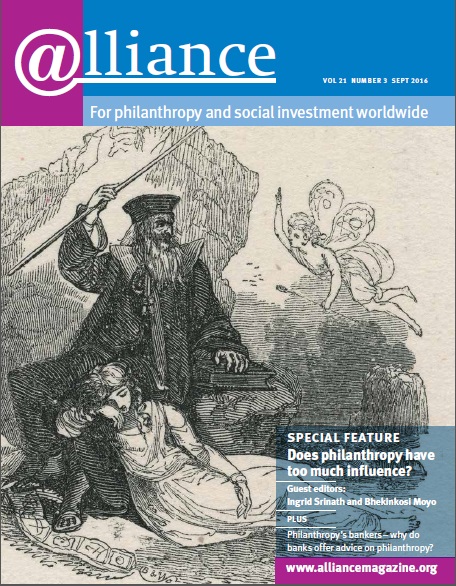
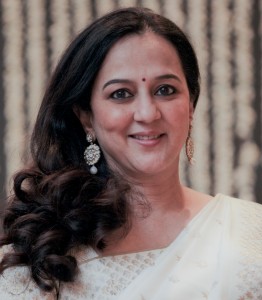
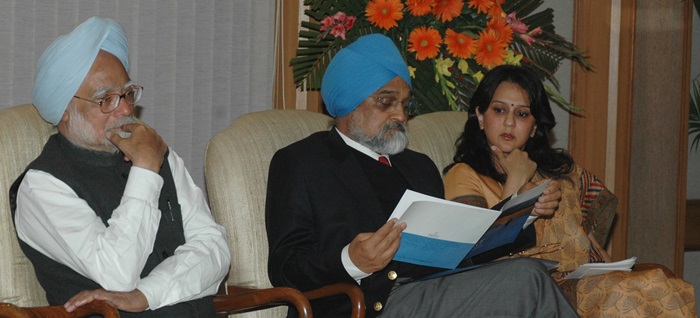
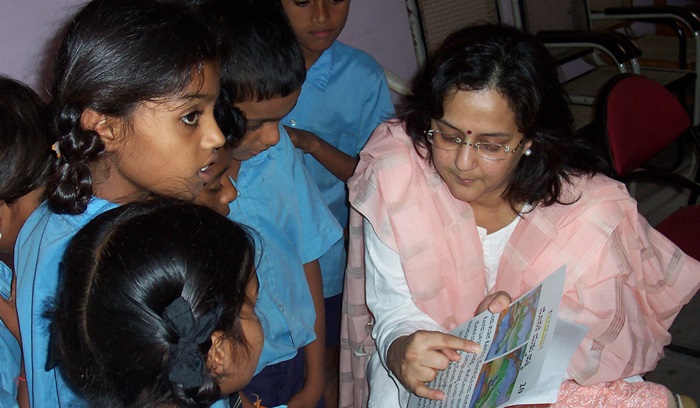


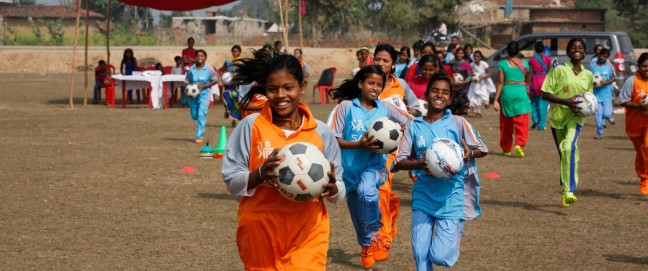
Comments (1)
The giving in philanthropy is a pleasure where both stack holders are meeting one objective